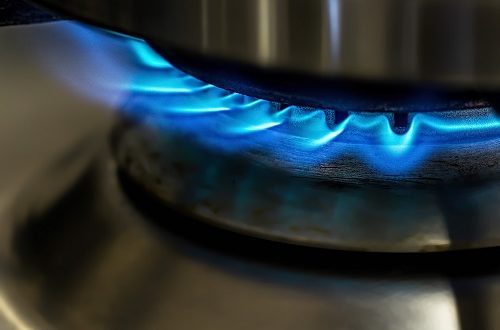In this guest article, Gas supplier Flogas updates us on the need and legal requirements for gas safety checks.
Is Britain failing to provide adequate gas safety checks?
The UK is home to five million privately rented properties. It is concerning to say the least then, that the gas safety surrounding these properties has been labelled as a ‘postcode lottery’. Both property owners and small business energy users are oblivious to the fact that failing to have a yearly gas safety check can impact their insurance cover.
It’s more than just getting a gas fitter round; gas safety needs a careful investigation each year. Without this, the potential for gas leaks, poor fitting appliances, and carbon monoxide poisoning all increase. Thus, huge fines threaten.
Are we, as a country, too relaxed about gas safety checks?
What regulations are in place?
The regulations landlords must follow changes from area to area. Under the Landlord Licence Scheme, landlords must prove they’ve met the legal requirement for an annual gas safety check in all their properties before they can let them out. However, just 40 local authorities across the country currently operate a Landlord Licence Scheme in their area.
But gas safety in general is often overlooked. Yes, most landlords are well aware of what’s required to keep their properties and their tenants safe – but there are still many premises at the mercy of negligent landlords who are carrying out suspect DIY heating repairs or skipping annual checks altogether. What’s more, with 7,500 unregistered gas fitters responsible for 250,000 illegal gas jobs in the UK every year, rogue traders are still very much a problem nationwide.
Limited by such regulations, energy users often don’t know enough about the subject. For example, a shocking number of small businesses that are using mains gas are failing to stay on top of gas safety in the workplace. In fact, a recent survey found that 23% had no idea that their gas appliances need to be checked on an annual basis – and a worrying 18% haven’t had a visit from a Gas Safe Engineer in the last year.
For landlords
It is, of course, a landlord’s responsibility to make sure the property they are leasing is safe. So, how can landlords ensure their premises are fit for purpose – and keep energy users in the loop? Flogas, who offers business gas supply, gives a rundown of the steps to take:
-
Maintain your gas supply
This means always using a Gas Safe registered engineer to service your boiler and any other gas appliances, and to maintain any gas pipework and chimneys or flues. The manufacturer’s instructions should outline how often appliances should be serviced, but if these are not available then the Gas Safe Register recommends servicing once a year. Appliances owned by tenants don’t fall within this remit, and neither do flues that connect only to tenants’ appliances.
-
Check annually
You must arrange for a full gas safety check once a year – this is carried out by a Gas Safe registered engineer and covers all gas appliances and flues. Again, you don’t need to organise checks for any of your tenants’ own appliances (or flues that connect only to appliances owned by the tenant).
-
Keep records
All gas safety checks carried out in your property must be recorded on a Landlord Gas Safety form. As well as keeping a copy for yourself (for at least two years, or until a further two checks have been carried out), you must provide your tenants with their own copy within 28 days. For new tenants, it’s at the start of the tenancy, and for any rental periods shorter than 28 days, simply display the record in a prominent place in the property.
Changes in 2018
As of April 2018, landlords have been able to arrange their yearly gas safety check two months in advance without affecting their current certificate’s expiry date. You can now arrange a new check any time within 10-12 months of the last one — and when the old certificate runs out, the new one will simply run for the next year.
If you need to carry out another check less than 10 months, or more than 12 months, before the last one, the expiry date will a year added to the new certificate’s issue date. It’s worth noting that landlords who make use of the new rules must keep their gas safety records until two further gas safety checks have been carried out. With this new approach, landlords can arrange for new gas checks to take place before the old one expires — without shortening a certificate’s lifespan. It also makes it easier to keep track of renewal dates, as these stay the same each year.
The change has been widely embraced by UK landlords. They’re a way to uphold the very highest gas safety standards – whilst making the checks process more flexible and straightforward all round.
To find your local Gas Safe registered engineer, visit: www.gassaferegister.co.uk
 Homeowners Club If you are one of the 15 million homeowners in the UK, the free to join online Homeowners Club is for you.
Homeowners Club If you are one of the 15 million homeowners in the UK, the free to join online Homeowners Club is for you.








